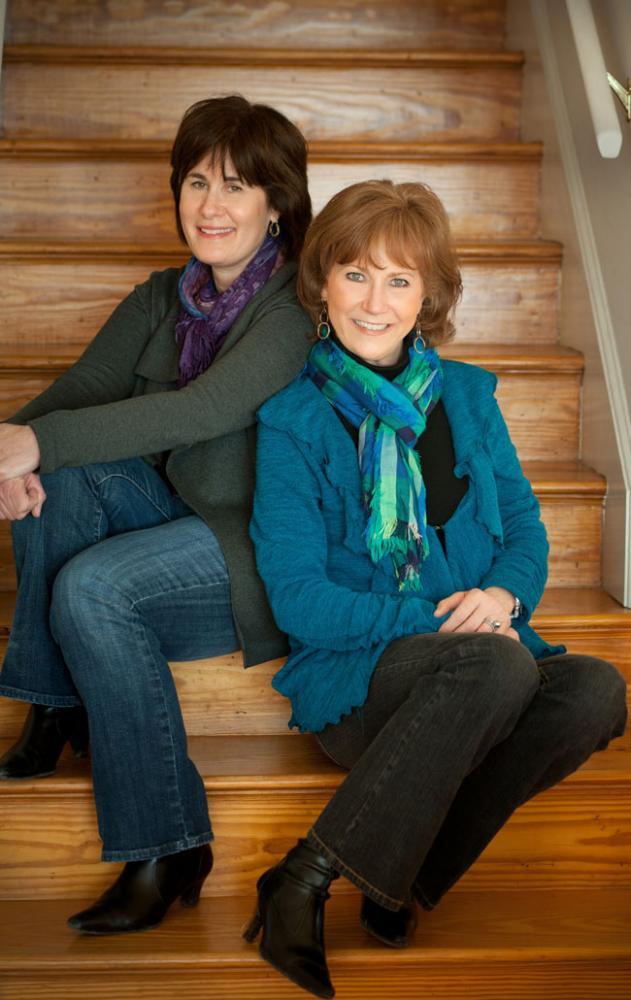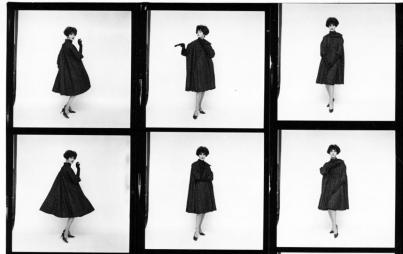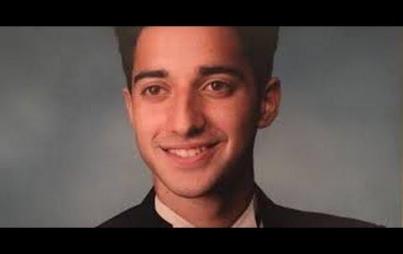
Aging parents. Empty nesting. Menopause. Retirement.
The issues Boomer women face are unique to their generation and, often, daunting. Yet far too often, these women are not provided the space to honestly reflect on their experiences.
Happily for the 80 million Boomers of the world, Kathy Bernard and Barbara Kline are seeking to change that.
The co-hosts of the cheekily named 2BoomerBabes Radio Hour, which airs on NPR affiliates and SiriusXM, tackle relationships, finance, travel, technology, and anything and everything in between—all with a wit and rawness that has made their show a runaway success. Recently, the duo produced a powerful eight-part series on Alzheimer's that won the prestigious Gracie Award and two New York Festivals World’s Best Radio Program awards.
Between producing their show and blogging for the Huffington Post and Pfizer’s GetOld media campaign, the pair spoke with me about Alzheimer's, the cops who love their program—and why they will never change their thick Midwestern accents.
Why create a show specifically for the Boomer generation?
Barbara: Friends were hitting menopause, their parents were getting sick; there were so many things we were talking about among our girlfriends and husbands, but no broader forum to talk about mid-life. So that was the start.
Kathy: Like most of what we do, we sort of thought of something and said, How hard can it be? Let's just write and produce an hour-long radio program!
Barbara: We are who we are; these Midwestern women who had never done a thing in broadcasting.
What challenges did you face in getting the program off the ground?
Kathy: We started very locally. I live in a small town in the east, and Barb lives two hours away. We just met with the GM of a station, and the next thing you know, they wanted us to do it there. Within minutes of that, we landed this big hospital as a sponsor, and then seven months later, NPR affiliates picked us up.
Barbara: And we quit our day jobs!
Kathy: We got to the NPR studios and this woman who was in charge of programming said she needed to give us voice lessons. Well let me tell you, it only made things worse. She was trying to change our accents and make us sound very NPR-ish. And we were like, You either love it or leave it.
Barbara: We only pick topics that we're pretty passionate about, and the more excited we get, the worse our accents get. The instructor just threw her hands in the air; she quit shortly thereafter! I'm too old—my voice is my voice and that's the way it's gonna be.
Why do you think your show has really resonated with people?
Barbara: I think we're relatable. We're not movie stars or starlets; we're kind of everyday people living the Boomer moment. We personally are going through all these things. We're not experts, but we have a feel for what to ask the experts.
Kathy: Our kids are getting married, so we're talking about how to survive a child's wedding, and how to become an in-law. There are so many things that are timely and topical. We did a whole series on Alzheimer's. We do happy, serious, sad. Theres not a topic we don't touch, except religion and politics. The Alzheimer's idea came from Barbara dealing with her father and meeting people along the way and feeling that there was something there. 
What was the response to the Alzheimer's series like?
Barbara: Pretty strong, because a lot of Boomers are caring for their aging parents. Kathy went through this with me, with my dad having Alzheimer's, and we ended up interviewing people from the facility he was at and from elsewhere, like the wife of former Senator William Proxmire, who had early Alzheimer's. She was telling us about her experiences.
Was there any particular story from the series that really resonated with you?
Kathy: They all did. We highlighted eight individuals, and they were all unbelievably powerful. Besides Barbara and her story, there was Barry Peterson, a former journalist and foreign correspondent, whose wonderful wife Jan had Alzheimer's. He came down to the studios with his new love, even though Jan is still living, and talked about the pain and the tragedy of losing someone so young and moving forward with his life before he totally lost it as the exhausted caregiver. He found another individual who loved her as much as he did. You can't make this stuff up; it's so complicated and raw, and we were so honored that people opened up to us and bared all.
Barbara: Another thing we explored was that—though of course it's a terrible, terrible thing—there's some unexpected goodness that can come out of it, like the friendships. You become so close with others going through it; you become a new family in a way. In one case, which I thought was so touching, a man had a horrible relationship when his father was in his right mind, but when his father began showing signs of Alzheimer's, they developed a new kind of loving relationship, and that extended down to the grandkids. They began rediscovering their relationship.
The people we profiled weren't just patients. They were doctors, engineers, they worked on the space program. We wanted to highlight that—that they might be patients, but they had incredible lives.
Can other generations relate to the podcast?
Kathy: We hear from all kinds of people of all ages. We're very surprised. We do a lot of speaking engagements, and sometimes young people will come up to us, in their 30s, and say, I can relate, or now I understand my mom. I think our show tries to be topical and funny but informative, and that also draws a broad range of listeners. And we get dudes that tune in too!
Barbara: One day we were at the NPR studio in Maryland, and Kathy's car wouldn't start and we decided to call the police department—don't ask me why we called the police instead of the DMV—and this big burly officer comes up, in his 30s, and fixed our car. And we happened to be interviewing the Farmers Almanac editor that day, and we gave him a copy. And he looked up and said, You're not the 2 Boomer Babes are you? And he said all the guys listened to us every Saturday morning. That made our year. And we autographed the book!
Any advice for Boomers?
Kathy: For me, it's that everybody has a story to tell. Everybody out there is kind of interesting, and from our own perspective, just when you think things might not work out, just keep pushing and plugging along. We're a perfect example of that.
Barbara: Another one of our mantras is that it's all about attitude. Hopefully we're all gonna get older; we all want to do that because the alternative is not so bright. It's about stepping up and doing something outside of the box. Try it. What's the worst that can happen? The biggest joy is the amazing people from all walks of life we have the honor of talking to.






